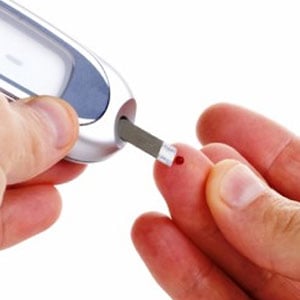
Diabetes pills known as DPP-4 therapies got a mixed safety report on Monday as studies showed they did not raise the risk of heart attacks but might be linked to heart failure, where the heart fails to pump blood adequately.
Reassuringly, the medicines were not associated with increased rates of either inflammation of the pancreas or cancer – something that has been a worry in the past.
However, in the case of AstraZeneca and Bristol-Myers Squibb's approved drug Onglyza, there was a small increase in hospitalisations for heart failure.
"It is a little bit concerning," said Dr Christopher Grainger of Duke University Medical Center, who was not involved in the research. "I'm sure the FDA (US Food and Drug Administration) will want to know more about it."
Cardiovascular safety profile
Doctors and regulators are wary of the cardiovascular safety profile of diabetes drugs following past problems, including with GlaxoSmithKline's Avandia pill, since patients with diabetes are at increased risk of heart troubles.
Researchers from Brigham and Women's Hospital in Boston, who studied Onglyza over two years in 16 492 patients, said the heart failure finding was unexpected and deserved further investigation.
AstraZeneca and Bristol had already given headline results from the study in June, showing Onglyza did not increase heart attack risk – although it did not reduce it either, as the companies had initially hoped.
To date, researchers have been unable to identify any diabetes drug that is not only safe but actually beneficial to the heart.
Some doctors were disappointed that Onglyza and Takeda's rival drug Nesina did not reduce heart risks. However, Dr. Heinz Drexel, a heart specialist at Feldkirch Hospital in Austria and a spokesman for the European Society of Cardiology (ESC), said the idea of such a benefit from taking the medicines was "not logical".
Drexel said DPP-4s still offered several advantages, including a lack of weight gain seen with some other antidiabetics, which would offset the heart failure worries.
Small increase in hospitalisations
Detailed results of the Onglyza study were presented at the ESC annual congress in Amsterdam, alongside a 5 380-patient study of Nesina. Both studies showing no overall increase in cardiovascular risks were published simultaneously in the New England Journal of Medicine.
The co-principal investigator on the Onglyza study, Dr Deepak Bhatt, said he believed the heart failure issue seen with Onglyza was very likely a class effect common to all DPP-4s, adding it had probably not shown up in the Nesina trial because it was far smaller.
Still, he said the increase in heart-failure hospitalisations with Onglyza was small, affecting 3.5% of those taking the drug compared with 2.8% for the control group.
Dr Anthony DeMaria, editor-in-chief of the Journal of the American College of Cardiology, said the absence of severe adverse events was reassuring but it might be that DPP-4s were best avoided for certain patients at high risk of heart failure.
Drugs like Onglyza and Nesina work by inhibiting dipeptidyl peptidase-4, or DPP-4, to enhance the body's ability to lower elevated levels of blood sugar.
Well tolerated
DDP-4s are not the most powerful agents for lowering blood sugar levels but they are well tolerated and have proved an attractive option for doctors looking for new oral drugs.
The DPP-4 market is dominated by Merck's Januvia, which has annual sales of around $5 billion, including a related combination treatment called Janumet. But growth of the class has slowed this year, partly on concerns over pancreatic safety.
Onglyza, which had sales of $709 million in 2012, is a crucial product for AstraZeneca, which is banking on diabetes to help revive falling group sales due to patent expiries on several of its biggest-selling drugs.
Briggs Morrison, AstraZeneca's head of global medicines development, said the overall results of the latest trial were reassuring and the small increase in heart failure hospitalisations did not change the risk profile of the drug.
A similar heart study of Merck's Januvia in more than 14 000 patients is being conducted with results expected next year.




 Publications
Publications
 Partners
Partners















